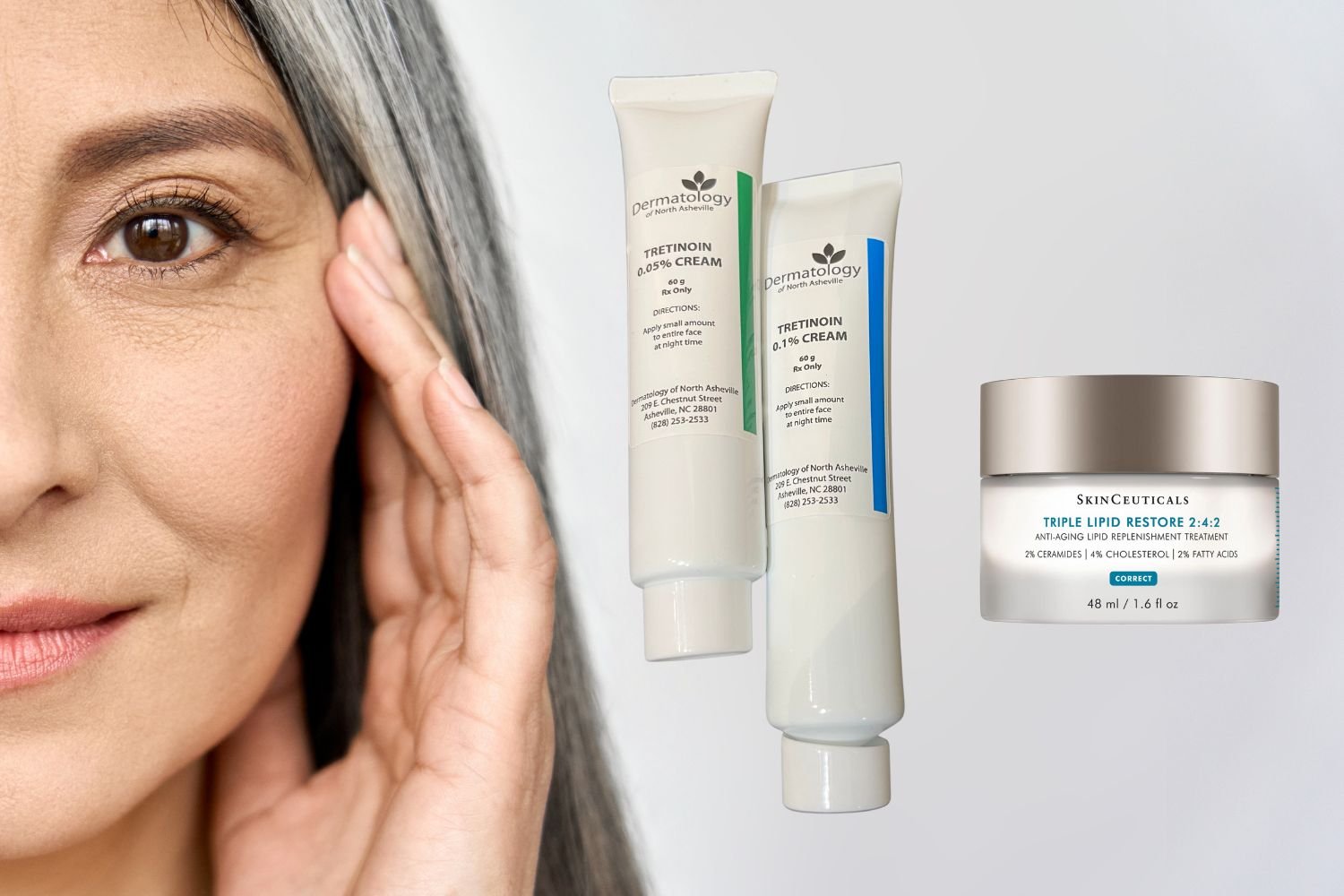Choosing and Applying Sunscreen
The weather is getting warmer, which means an increase in outside activities. Sunscreen is an important tool to prevent skin cancer, including melanoma, the deadliest form. Learn how to choose the right sunscreen for you as well as how to apply it correctly.
Is Botox® Right for You?
Botulinum toxin therapy (or Botox®, a common brand name) is one of the most popular cosmetic treatments available. To help you decide whether this treatment is right for you and to have the treatment performed safely, read this article.
How to Prevent Skin Cancer
February is National Cancer Prevention Month, and skin cancer is the most common and preventable cancer in the United States. Learn how you can prevent skin cancer for yourself and your family!
Winter Skincare Tips
When the air is cold outside, hot inside, and dry everywhere, your skin takes a beating. Try these tips to protect and hydrate your skin this season.
Enjoy Clear and Hydrated Skin with Our Winter Special
Enjoy clear and hydrated skin this winter with our winter special. Buy a tube of tretinoin and receive a discounted price for Triple Lipid Restore cream for $99! (This is a $29 savings.)
Skin Care on a Budget
Skincare products don’t have to be expensive to be effective. To take good care of your skin, focus on three basic steps: cleansing, moisturizing, and protecting.
Dr. Mark Hutchin Named a Top Dermatologist in NC
In the December 2021 issue, Business North Carolina published a list of North Carolina’s top doctors, and our very own Dr. Mark Hutchin made the list!
Why You Don't Want to Remove Skin Lesions Yourself
You may have noticed a new growth on your skin that you think is unattractive. As you age, these growths are normal, but you don’t want to try to remove them yourself. Find out why!
What You Need to Know about Monkeypox
If you’ve heard about monkeypox on the news, you are probably wondering what it is and whether you can get infected. Learn all you need to know in this post!
Common Summer Skin Care Issues
Summer is so much fun! But skin issues aren’t. Learn about a few common skin care issues that people can get during the summer, along with tips for how to avoid them.
Your Skin and the Summer Sun
Over time, sun damage can create freckles, age spots, and wrinkles. Making a habit to protect your skin will reduce your risk of developing cancer.
Choosing Anti-Aging Products
The skincare industry offers extensive anti-aging options. If you feel overwhelmed, check out our tips to find out what’s right for you.
Bug Bites and Stings
It’s springtime, and the bugs are out. Find out how to avoid getting bitten and what symptoms to be concerned about if a bug does bite you.
Heart Disease and Your Skin
When you think of your heart, odds are your skin is not the first thing you think of to check. There are a variety of signs and symptoms that could mean heart disease. Read more to learn about these signs and symptoms.
Our Top 5 Tips for Healthy Hair
Hair may not be the first thing that comes to mind when discussing topics with your dermatologist, but we can help!
Winter Specials!
If you are looking for a healthy skin care regimen, then look no further! Our winter special includes hand-selected skin care products designed to keep your skin healthy and happy all year long!
What You Can Do To Prevent Dry Winter Skin
Winter comes every year along with itchy, dry skin. In this month’s blog, Dr. L. Evan Michael gives you tips on how to keep your skin from falling victim to winter dryness.
Top 10 Secrets for Healthier Skin
The secret to these secrets is that they’re not really secrets! These are tips that just about any dermatologist will offer to their patients who are looking for ways to have healthier skin.
Rashes in Kids: How to Tell if it's Coronavirus
In addition to paying attention to regular virus symptoms, now we can add rash to the list of potential coronavirus symptoms to monitor. This rash is sometimes the only coronavirus symptom visible in children.
Treating Sunburns
Sunburns occur when there is too much exposure to the sun. Sounds pretty simple, right? That exposure, however, can cause long lasting damage to your skin and increase your potential for developing skin cancer.




















